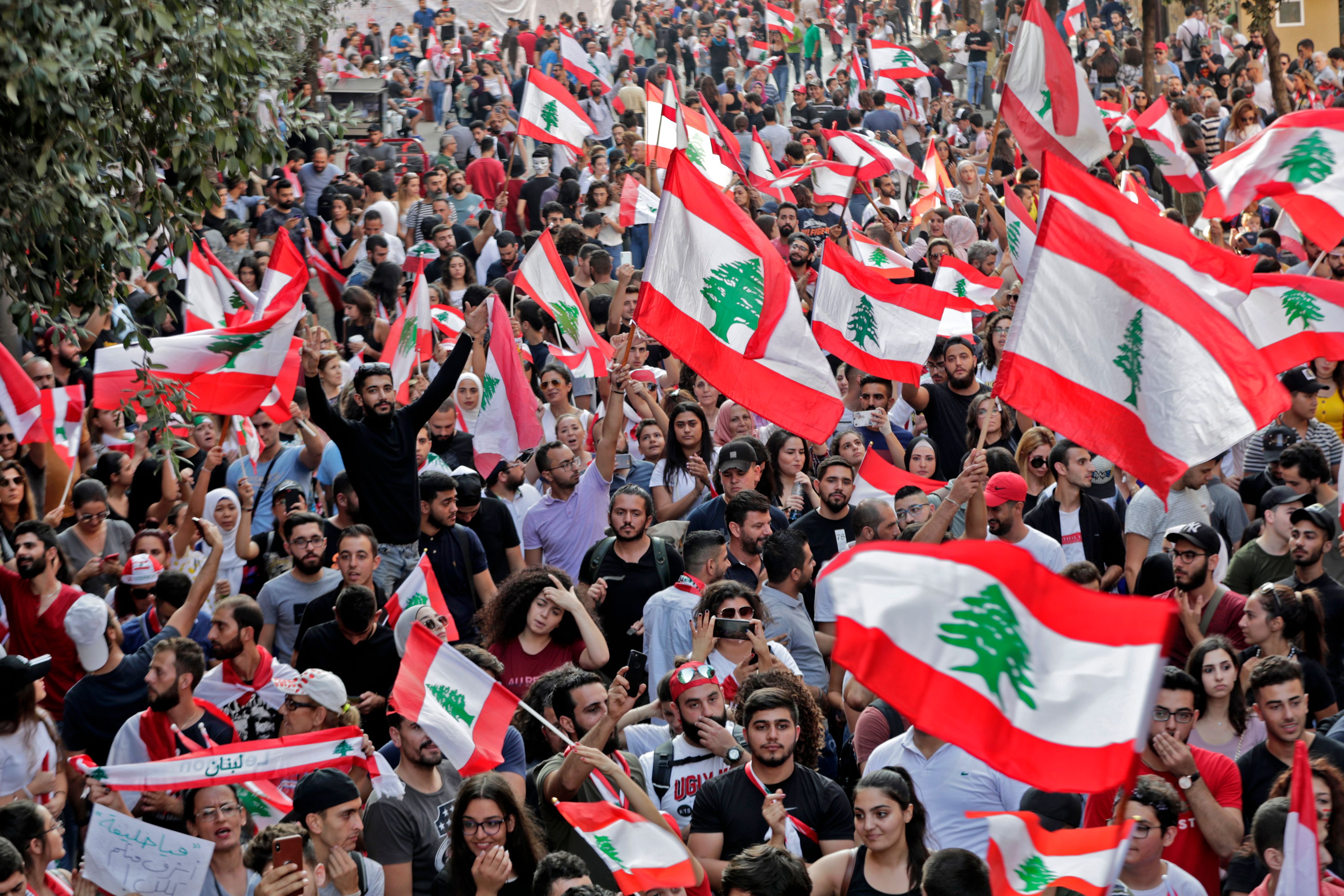
For the sixth straight day, demonstrators in Lebanon have taken to the streets in a historic protest of government corruption and mismanagement. Schools, banks, and other establishments throughout the country have closed in recognition of the movement, and now arts organizations are following suit.
Museums, galleries, and foundations in the capital city of Beirut have closed their doors indefinitely as a gesture of solidarity with the protesters.
“Like everyone else in Lebanon, we took to the streets,” a representative for Dar El-Nimer, a prominent art foundation in the city, told artnet News. “We believe in this uprising and stand by its demands as Dar El-Nimer is devoted to showcasing cultural and artistic productions which are committed to rightful causes reflected in today’s protests. Moreover, it is our duty to stand in solidarity with fellow institutions which collectively demonstrate that art is not detached from the sociopolitical reality of the country.”
The protests, the largest to take place in Lebanon in over a decade, began last Thursday when the state proposed a new tax for calls placed through internet apps, including WhatsApp, Facebook Messenger, and Apple’s FaceTime. Though lawmakers quickly withdrew the proposal, crowds on the street continued to grow as the protests turned to larger issues such as government corruption, the decay of public spaces, and the country’s sizable debt.
Estimates suggest that the protests have drawn more than two million citizens—one third the size of the entire country’s population.
Other arts enterprises that have halted business include the Sursock Museum, the Beirut Art Center, ARTLAB, Sfeir-Semler Gallery, and Galerie Tanit. Ashkal Alwan, a non-profit space for contemporary art, has canceled its triannual exhibition and symposium program, Home Works 8.
“There shouldn’t be any reason to regret or apologize for the indefinite postponement of our programs and events,” the organization said in a press release. “Our artistic, intellectual, and organizational energy will be redirected towards the achievement of our hopes and aspirations, the possibility of which is being granted to us by a momentum that should be seized at any cost.”
The statement, shared on Instagram, ends with a call to action: “See you on the streets.”
“The protests have affected our opening hours but they completely align with our hopes for this country,” a spokeswoman for the Beirut Art Center told The Art Newspaper. “The current regime has ravaged this nation economically, stymied growth and advancement, silenced many and polluted this land with their corruption, fear tactics, and greed.”